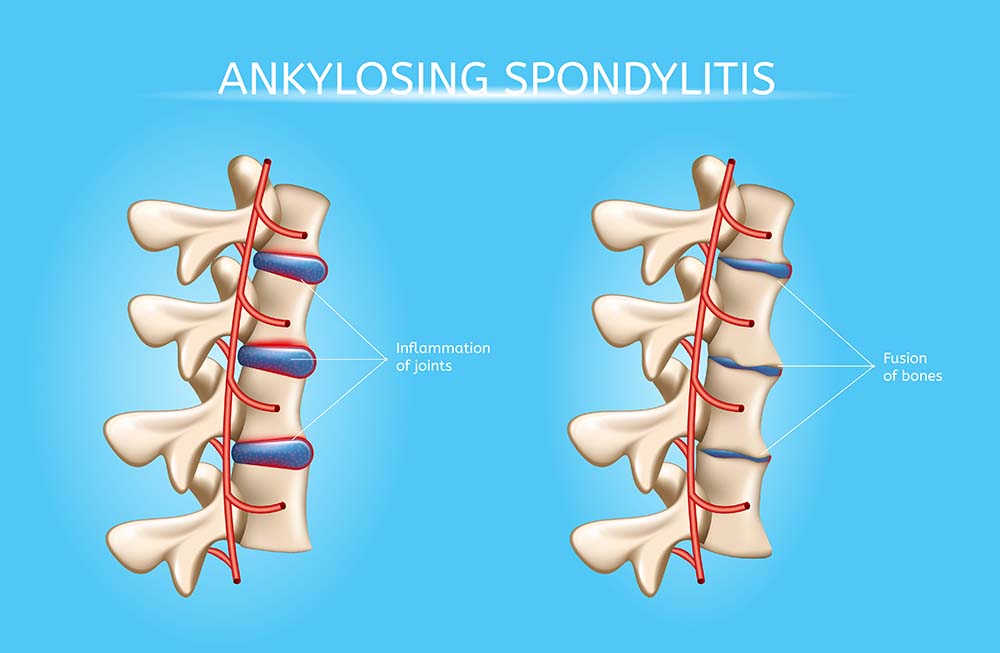What is Ankylosing Spondylitis Infusion Therapy?
Ankylosing Spondylitis Infusion Therapy is a type of treatment for Ankylosing Spondylitis. It is used to reduce inflammation and pain in the spine.
Ankylosing spondylitis (AS) is a form of arthritis that affects the joints in the spine and can lead to chronic pain, stiffness, and inflammation. AS infusion therapy (AT) is a treatment for reducing inflammation and pain in the spine. AT involves using an intravenous drip to deliver medication directly into the fluid that surrounds your spinal cord.
How to Succeed with Ankylosing Spondylitis Infusion Therapy
One of the most common treatments for Ankylosing Spondylitis is to use Infusion Therapy. This type of treatment involves giving a patient fluids, nutrients, and medications through an intravenous line that's been inserted into their body.
It's important to know that this type of treatment isn't always successful and can sometimes lead to side effects such as nausea and vomiting, or even more serious problems like kidney failure or pulmonary embolism.
The key to success with AS infusion therapy is consistency. The more regularly you get your infusions, the less likely you are to have flare-ups or experience serious complications. Here are 5 things to consider:
- The first step is to find a doctor who specializes in this type of treatment, such as eCare Clinic in Canton Michigan.
- The second step is to make sure that you are on the right medication and dosage.
- Third, be sure to follow your doctor’s instructions on what you need to do before, during and after treatment.
- Fourth, make sure that you have a good support system in place so that you can get through this difficult time in your life.
- Finally, be patient because it will take some time for these medications to kick in and start working for you.
What Causes Ankylosing Spondylitis?
Ankylosing Spondylitis is a chronic inflammatory disease that primarily affects the spine. The disease causes stiffness and pain in the back, hips, and other areas of the body.
Ankylosing Spondylitis is not contagious. It is an autoimmune disorder that develops when your immune system mistakenly attacks healthy tissue in your spine. This leads to inflammation and pain in your joints and muscles.
The exact cause of Ankylosing Spondylitis is unknown. However, there are many factors that may increase a person’s risk for developing the condition: genetics (family history), sex (male), age (older than 40 years old), smoking, stress, obesity, and previous trauma to the joints or bones in the spine such as fractures or surgery.
Ankylosing Spondylitis Symptoms and Diagnosis
The symptoms of Ankylosing Spondylitis are usually mild at first. They may include low back pain or stiffness, which can be worse in the morning and improve with activity. Pain may also be felt in one or both sides of the lower back or buttocks and/or around the hips or sacroiliac joint. There may also be pain in other joints such as those found in shoulders, knees, or feet.
The diagnosis of AS is primarily based on the symptoms and the x-ray findings. The diagnosis can be confirmed with a blood test, which detects antibodies against the sacroiliac joints or with an MRI scan, which may show inflammation at these joints.
Ankylosing Spondylitis Treatment and Management
Ankylosing spondylitis is a form of arthritis that affects the spine. It can cause pain and stiffness in the back and neck, as well as other joints. It can also cause inflammation in the eyes, lungs, and heart.
The first line of treatment is usually a type of drug called NSAIDs (nonsteroidal anti-inflammatory drugs). These drugs reduce inflammation and pain. They are often used with another type of drug called DMARDs (disease-modifying anti-rheumatic drugs). DMARDs help to slow down the progression of ankylosing spondylitis. This helps to delay or avoid surgery or other treatments for a longer time. Exercise can help improve mobility, strength, and flexibility of the joints as well.
If you are suffering from this condition, it is important to consult with your doctor before making any changes to your treatment plan to avoid any complications.
If you are looking for Ankylosing spondylitis infusion therapy in Canton Michigan please reachout to eCare Clinic.
eCare Clinic Infusion Therapy Center
Call Us at 877-882-4480
7272 Sheldon Canton MI, 48187
Website: https://www.ecarehpc.org
Learn about Rheumatoid Arthritis Therapy here.
Rheumatoid arthritis is a chronic inflammatory condition that can impact many different parts of the body, such as the skin, lungs, heart and blood vessels. In some cases, this condition can also lead to significant damage to other systems.

